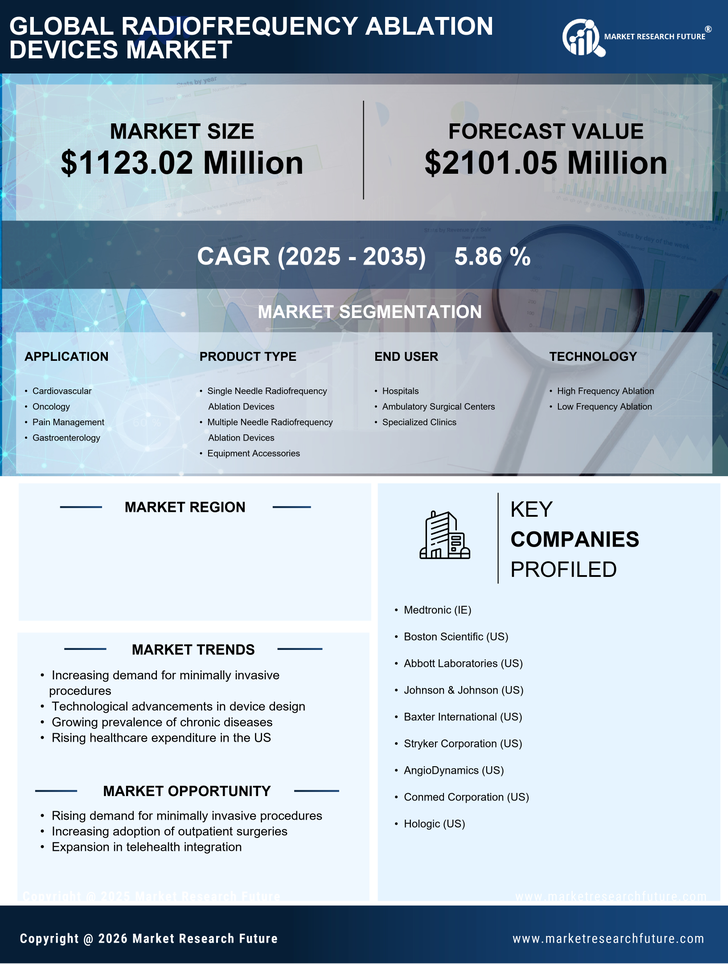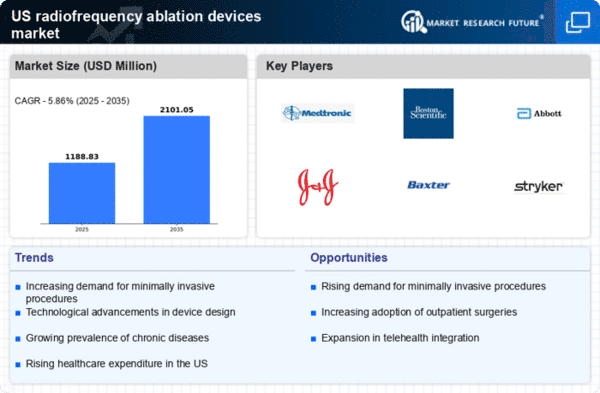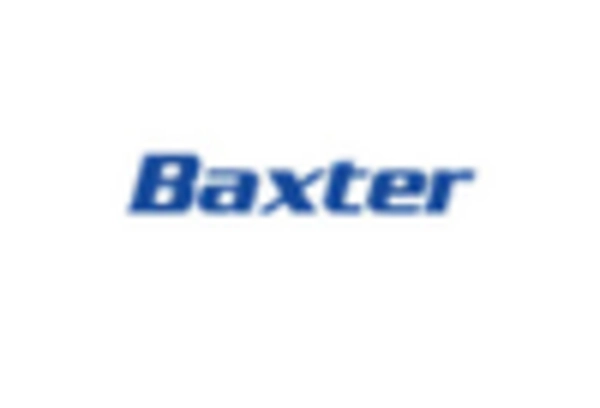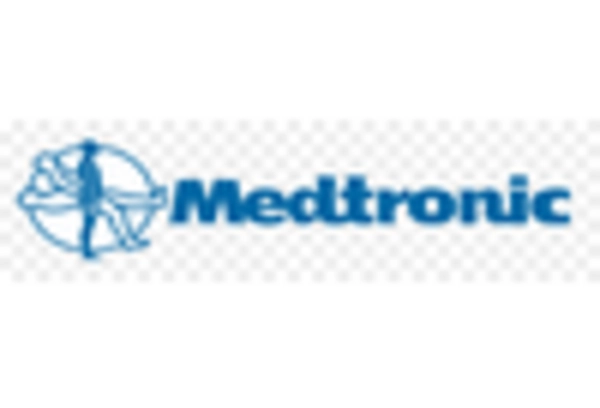Rising Healthcare Expenditure
The increasing healthcare expenditure in the US is a significant driver for the radiofrequency ablation-devices market. As healthcare budgets expand, hospitals and clinics are more willing to invest in advanced medical technologies that improve patient outcomes. In 2025, healthcare spending is projected to reach approximately $4 trillion, reflecting a growing commitment to enhancing healthcare services. This financial investment allows for the acquisition of state-of-the-art radiofrequency ablation devices, which can lead to more effective treatments for patients. Furthermore, as healthcare providers seek to optimize their operational efficiency, the adoption of radiofrequency ablation technologies is likely to rise. This trend indicates a robust future for the radiofrequency ablation-devices market, as increased spending translates into greater access to innovative treatment options.
Supportive Regulatory Environment
The regulatory landscape in the US is becoming increasingly favorable for the radiofrequency ablation-devices market. Regulatory bodies, such as the FDA, are streamlining the approval processes for new medical devices, which encourages innovation and expedites the introduction of advanced technologies. Additionally, the establishment of clear guidelines for the use of radiofrequency ablation in various medical applications is fostering confidence among healthcare providers. This supportive environment is likely to lead to an influx of new products entering the market, enhancing competition and driving down costs. As a result, healthcare facilities are more inclined to adopt radiofrequency ablation technologies, further propelling market growth. The ongoing collaboration between manufacturers and regulatory agencies is expected to yield positive outcomes for the radiofrequency ablation-devices market.
Advancements in Medical Technology
Technological innovations in the field of medical devices are propelling the radiofrequency ablation-devices market forward. Recent advancements, such as improved imaging techniques and enhanced energy delivery systems, have made procedures safer and more effective. For instance, the integration of real-time imaging allows for precise targeting of tissues, minimizing damage to surrounding areas. The market is projected to grow at a CAGR of around 10% over the next few years, driven by these technological enhancements. Furthermore, the development of new ablation devices that offer greater versatility and ease of use is likely to attract more healthcare providers. As hospitals and clinics invest in state-of-the-art equipment, the radiofrequency ablation-devices market is poised for substantial growth, reflecting the ongoing commitment to improving patient care through innovation.
Increasing Prevalence of Chronic Diseases
The rising incidence of chronic diseases such as cancer, cardiovascular disorders, and obesity in the US is a primary driver for the radiofrequency ablation-devices market. As these conditions become more prevalent, the demand for effective treatment options increases. According to recent statistics, chronic diseases account for approximately 70% of all deaths in the US, highlighting the urgent need for innovative medical solutions. Radiofrequency ablation offers a minimally invasive alternative to traditional surgical methods, which is appealing to both patients and healthcare providers. This trend is likely to continue, as healthcare systems seek to improve patient outcomes while managing costs. The radiofrequency ablation-devices market is expected to benefit significantly from this growing patient population, as more healthcare facilities adopt these technologies to address the increasing burden of chronic diseases.
Growing Awareness and Acceptance of Minimally Invasive Techniques
There is a notable shift in patient and physician preferences towards minimally invasive procedures, which is significantly influencing the radiofrequency ablation-devices market. Patients are increasingly aware of the benefits associated with such techniques, including reduced recovery times, lower risk of complications, and less postoperative pain. This growing acceptance is supported by educational initiatives and marketing efforts from medical device manufacturers. As a result, the demand for radiofrequency ablation procedures is on the rise, with many healthcare providers incorporating these techniques into their treatment protocols. The market is likely to see a continued increase in adoption rates, as more patients seek out less invasive options for their medical conditions. This trend not only enhances patient satisfaction but also drives the overall growth of the radiofrequency ablation-devices market.

















